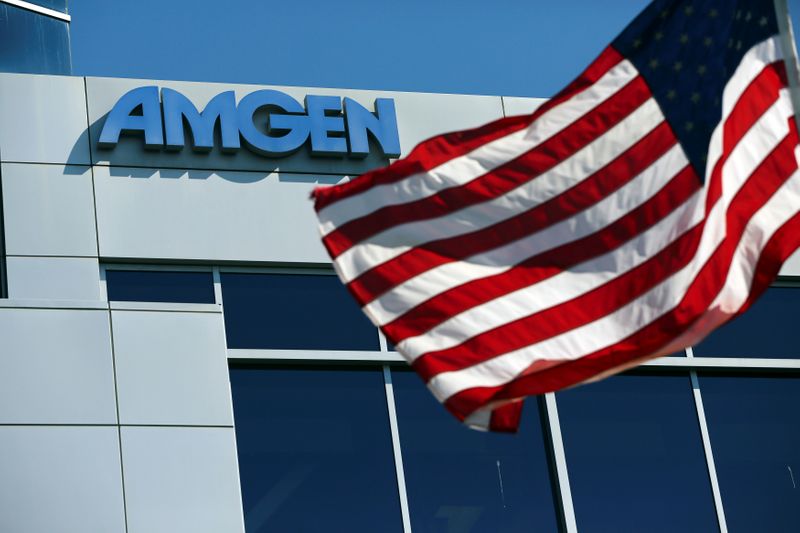By Deena Beasley
(Reuters) - Amgen Inc (NASDAQ:AMGN) on Tuesday said its quarterly revenue rose 4% as the impact of the COVID-19 pandemic began to ease, but said new prescriptions will be subdued through 2021 and prices for some drugs remain under pressure from lower-cost competition.
For the full year, the biotechnology company lowered the top end of its revenue forecast to $26.2 billion from a previous $26.6 billion. Wall Street analysts had forecast $26 billion, according to Refinitiv.
Amgen also slightly raised its outlook for 2021 adjusted earnings per share to between $16.50 and $17.10 from a previous range of $16.00 to $17.00.
Amgen shares closed up 2% at $214.26, but gave back most of those gain in extended trading and were down to $211 after hours.
The quarterly results were mostly in line with expectations, with investors next focusing on January, when Amgen is expected to hear from the U.S. Food and Drug Administration (FDA) on an application for asthma drug tezepelumab, Jefferies (NYSE:JEF) analyst Michael Yee said in a research note.
Adjusted earnings per share for the quarter, helped by share repurchases, were $4.69, beating the average analyst forecast of $4.27.
Full-year stock buy backs will come in near the high end of the company's estimated range of $3 billion to $5 billion, Chief Financial Officer Peter Griffith said on a conference call.
Amgen's net earnings fell 3% to $3.31 per share with a $400 million licensing-related expense from a collaboration with Japan's Kyowa Kirin Co Ltd.
Revenue for the quarter totaled $6.7 billion, up from $6.4 billion a year earlier, and in line with analyst expectations.
Amgen said sales volume for the quarter rose 8%, but net selling prices fell 7% as competition, including from cheaper generics and biosimilars, pushed down prices for its arthritis, migraine and infection-fighting drugs.

Sales of arthritis drug Enbrel fell 3% from a year earlier to $1.29 billion. Sales of newer cancer drug Lumakras totaled $36 million for the quarter, ahead of analyst estimates of $28 million.
Chief Executive Bob Bradway said the impact of the COVID-19 pandemic - including a decline in face-to-face doctor visits - "has lingered longer than we thought it would at the beginning of the year."